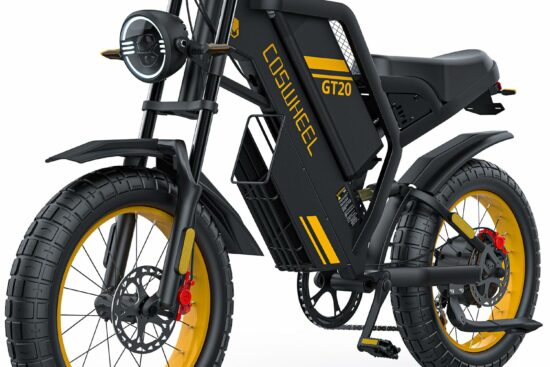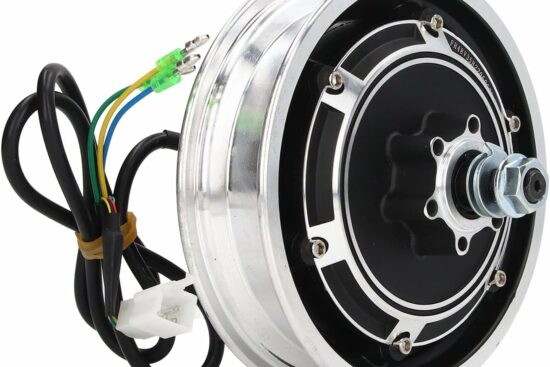
Do you ever wonder why e-scooters are not legal in the UK? It seems like they would be a convenient and eco-friendly mode of transportation. However, there are specific reasons why the UK has not yet fully embraced e-scooters. In this article, we will explore the regulations and safety concerns surrounding e-scooters in the UK and discuss the potential future of these electric vehicles.
If you’re curious to know more about e-scooters and why they are not yet legal in the UK, you’ve come to the right place. In this article, we will delve into the various factors that have contributed to the current restrictions on e-scooters. From concerns about road safety to issues with insurance and licensing, there are several considerations that need to be addressed before e-scooters can be allowed on UK roads. So, let’s dive in and unravel the complexities surrounding the legal status of e-scooters in the UK.

Overview of E-scooters
What are e-scooters?
E-scooters, short for electric scooters, are compact and motorized vehicles that are powered by electricity. They are designed for short-distance travel and are typically equipped with a small electric motor and a battery. E-scooters have gained popularity worldwide as they provide a convenient and eco-friendly mode of transportation, especially in urban areas.
Types of e-scooters
There are various types of e-scooters available in the market today. Some models are designed for personal use, while others are shared through dockless rental programs. Personal e-scooters are owned by individuals and used for personal commuting, while shared e-scooters are available for rent and can be accessed through smartphone apps.
Benefits of e-scooters
E-scooters offer several benefits both to individuals and to society at large. They provide a cost-effective and time-efficient mode of transportation, particularly for short-distance travel. E-scooters help reduce congestion on roads, as they take up less space compared to cars. Additionally, they have zero emissions and contribute to a greener environment.
Current Legal Status of E-scooters in the UK
Current laws and regulations
Currently, e-scooters are not legal to ride on public roads in the UK. According to the Road Traffic Act 1988, e-scooters are classified as motor vehicles and require registration, insurance, tax, and a valid license to operate. As they do not meet the necessary requirements, riding e-scooters on public roads is deemed illegal.
Comparison with other countries
The UK’s approach to e-scooter legislation differs from other countries. Some countries, such as Germany and France, have legalized the use of e-scooters with certain restrictions, such as speed limits and mandatory helmet use. Other countries, like the Netherlands and Sweden, have implemented pilot programs to assess the feasibility and impact of e-scooters on their transportation systems.
Issues with the current legal framework
The current legal framework in the UK has been criticized for being outdated and failing to address the growing demand for e-scooters. The Road Traffic Act 1988 was written long before the emergence of electric scooters and does not take into account their unique characteristics. This lack of specific legislation creates uncertainty for both users and law enforcement authorities.
Reasons for Banning E-scooters in the UK
Safety concerns
One of the primary reasons for banning e-scooters in the UK is safety concerns. E-scooters can reach speeds of up to 15-20 mph, which can pose a significant risk to riders, especially when sharing roads with larger vehicles. Moreover, e-scooters often lack safety features like indicators, lights, mirrors, and horns, making them difficult to see and anticipate for other road users.
Impact on pedestrian safety
Another concern regarding e-scooters is the impact on pedestrian safety. E-scooters are often ridden on sidewalks and shared pathways, potentially causing collisions or near misses with pedestrians. This poses a risk, especially for vulnerable groups such as children, the elderly, and individuals with disabilities. The lack of designated lanes for e-scooters further complicates the issue.
Risk of accidents and injuries
The risk of accidents and injuries is also a significant factor in the banning of e-scooters. Without proper regulations and safety measures, there is an increased likelihood of riders engaging in reckless behavior, such as speeding or riding under the influence of alcohol. This, combined with the lack of adequate protection, can result in severe injuries or fatalities.

Environmental Concerns
Emissions and air pollution
E-scooters are often considered as a greener alternative to traditional petrol-powered vehicles due to their zero-emission operation. By promoting the use of e-scooters, the UK can potentially reduce air pollution and its detrimental impact on public health. This aligns with the country’s commitments to address climate change and improve air quality.
Sustainable transportation options
Encouraging the use of e-scooters can contribute to creating a more sustainable transportation system. By providing an alternative to cars for short-distance travel, e-scooters can help reduce traffic congestion and carbon emissions. Integrating e-scooters into existing transportation options offers individuals a more diverse range of choices and can lead to a more efficient and balanced transport network.
Potential benefits of e-scooters in reducing carbon footprint
E-scooters have the potential to play a significant role in reducing the carbon footprint of transportation. With proper regulations and infrastructure, e-scooters could replace short car journeys, resulting in lower greenhouse gas emissions. This shift towards sustainable transportation modes is crucial for achieving the UK’s climate targets and improving the overall environmental impact of the transportation sector.
Challenges in Legalizing E-scooters
Infrastructure requirements
The legalization of e-scooters in the UK would require appropriate infrastructure to accommodate their safe use. Dedicated lanes or shared pathways would need to be created to separate e-scooters from other road users and pedestrians. Ensuring the availability of charging stations and maintenance facilities would also be necessary to support a wide-scale adoption of e-scooters.
Integration with existing transportation system
Integrating e-scooters into the existing transportation system poses some challenges. The design and operation of e-scooter rental programs need to be coordinated with public transportation services to avoid conflicts and inefficiencies. Integration can be achieved by developing partnerships between e-scooter companies and local authorities to ensure seamless connectivity between different modes of transportation.
Insurance and liability
Determining liability and insurance requirements for e-scooters is yet another challenge. In the event of accidents or damages, it becomes essential to establish who is responsible and provide appropriate compensation. Developing a comprehensive insurance framework for e-scooter users and operators would require close collaboration between regulators, insurance providers, and industry stakeholders.
Expert Opinions
Views from traffic safety experts
Traffic safety experts have expressed their concerns about the legalization of e-scooters without proper regulations. They emphasize the importance of establishing clear rules and safety standards to ensure the safe integration of e-scooters into the transportation system. Experts call for measures such as speed restrictions, mandatory protective gear, and rider education programs to minimize the risk of accidents and injuries.
Opinions from urban planners
Urban planners have varied opinions regarding the legalization of e-scooters. Some see e-scooters as a valuable addition to the urban mobility landscape, offering a sustainable and efficient mode of transportation. Others raise concerns about the potential impact on existing infrastructure and the need for careful planning to ensure e-scooters do not disrupt the overall functioning of cities and compromise safety.
Arguments from e-scooter manufacturers
E-scooter manufacturers argue that their products are safe and offer a viable solution to urban transportation challenges. They highlight the potential benefits of e-scooters, such as reduced congestion, improved air quality, and increased accessibility. Manufacturers also pledge to collaborate with authorities to enforce safety regulations and provide proper user education.
Public Perception and Acceptance
Attitudes towards e-scooters
The public’s attitude towards e-scooters is a mixed bag. Some individuals embrace e-scooters as a convenient and eco-friendly mode of transportation, particularly for short trips. They appreciate the ease of use and the flexibility offered by e-scooters. Others, however, express concerns about safety, potential nuisances, and conflicts with existing transportation modes.
Public surveys and opinion polls
Various public surveys and opinion polls have been conducted to gauge the perception and acceptance of e-scooters. The results have shown a range of opinions, influenced by factors such as age, location, and previous experience with e-scooters. While some surveys demonstrate support for e-scooters, others highlight concerns over safety and the need for stricter regulations.
Perceived advantages and disadvantages
The perceived advantages of e-scooters include convenience, affordability, and reduced travel time. Riders appreciate the ability to avoid traffic congestion and reach their destination faster. However, the disadvantages mainly revolve around safety issues, concern for pedestrians, and potential disruption to existing transportation systems. These concerns contribute to the overall hesitancy in accepting e-scooters as a legal mode of transport.
Pilot Programs and Future Developments
Current pilot programs in the UK
The UK has initiated several pilot programs to assess the feasibility and impact of e-scooters on its transportation systems. These programs aim to evaluate factors such as safety, ridership patterns, infrastructure requirements, and public acceptance. Several cities, including London, have participated in these trials, providing valuable data and insights to inform future e-scooter legislation.
Lessons learned from pilot programs
Pilot programs have highlighted both the potential benefits and challenges associated with e-scooters. They have demonstrated the need for proper infrastructure, clear regulations, and enhanced enforcement to ensure safe and responsible e-scooter use. The programs have also revealed the importance of collaboration between local authorities, e-scooter companies, and other stakeholders to address concerns and achieve successful integration.
Potential future legislation and regulations
Based on the lessons learned from pilot programs and the growing demand for e-scooters, future legislation and regulations are expected to be introduced in the UK. These new regulations may address concerns related to safety, infrastructure, liability, and insurance. The aim is to strike a balance between facilitating the use of e-scooters and ensuring the safety and well-being of all road users.
International Examples
Countries where e-scooters are legal
Several countries have successfully legalized e-scooters, implementing regulations that address safety concerns and promote responsible use. Countries such as Germany, France, and Spain have established specific rules for e-scooter users, including speed limits, strict helmet requirements, and designated lanes. These examples provide valuable insights for the UK in developing its own e-scooter legislation.
Case studies of successful e-scooter integration
Cities like Paris and Berlin have successfully integrated e-scooters into their transportation systems. By implementing well-designed infrastructure, ensuring proper regulation, and promoting public awareness campaigns, these cities have overcome initial challenges and witnessed the positive impact of e-scooters on urban mobility. UK policymakers can learn from these case studies to shape their approach to e-scooter legalization.
Lessons for the UK
The experiences of other countries provide valuable lessons for the UK in addressing the challenges associated with e-scooter legalization. It is crucial to strike a balance between facilitating innovation and managing potential risks. The UK can learn from the successes and failures of other countries and adapt their approaches accordingly to ensure the safe and sustainable integration of e-scooters into its transportation system.
Conclusion
In conclusion, the current legal status of e-scooters in the UK reflects concerns related to safety, pedestrian impact, and accidents. While e-scooters offer potential benefits such as reduced pollution and improved mobility, there are significant challenges to overcome in terms of legislation, infrastructure, and public acceptance. By learning from international examples, engaging experts, and considering public opinions, the UK can make informed decisions to shape future e-scooter legislation. Striking a balance between innovative transportation solutions and safety considerations will be essential to realize the full potential of e-scooters and create a sustainable and inclusive transportation system.























